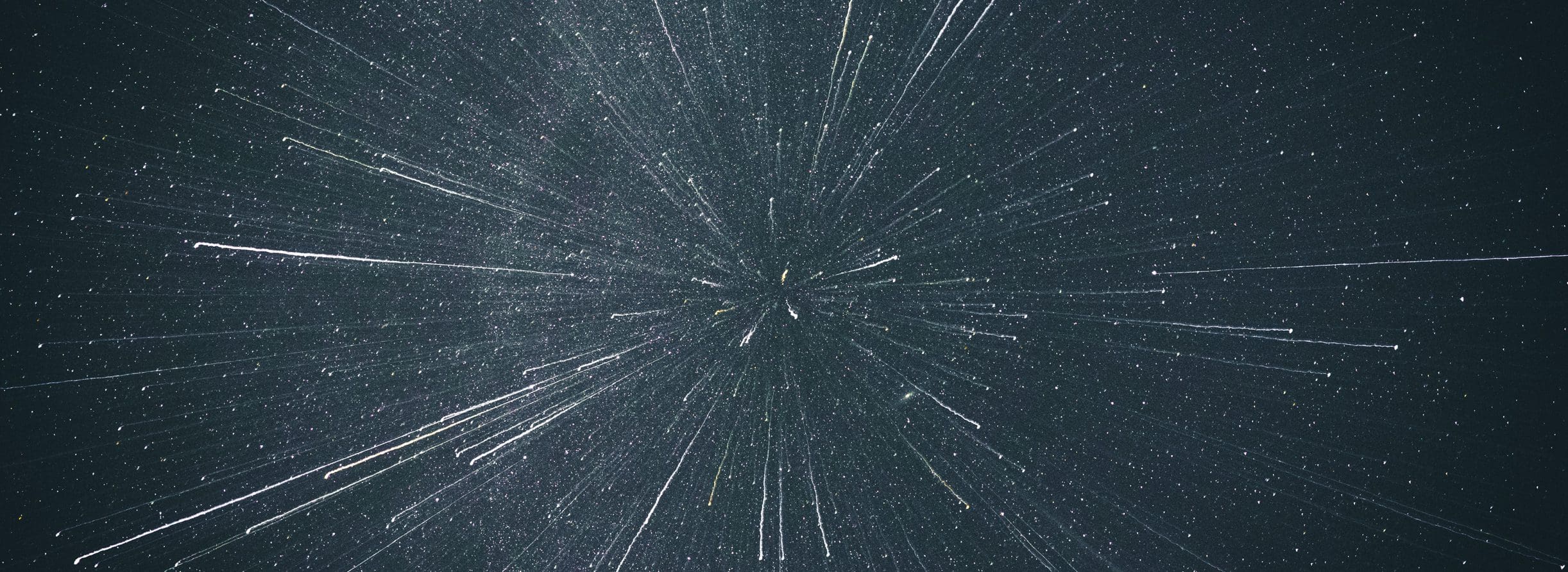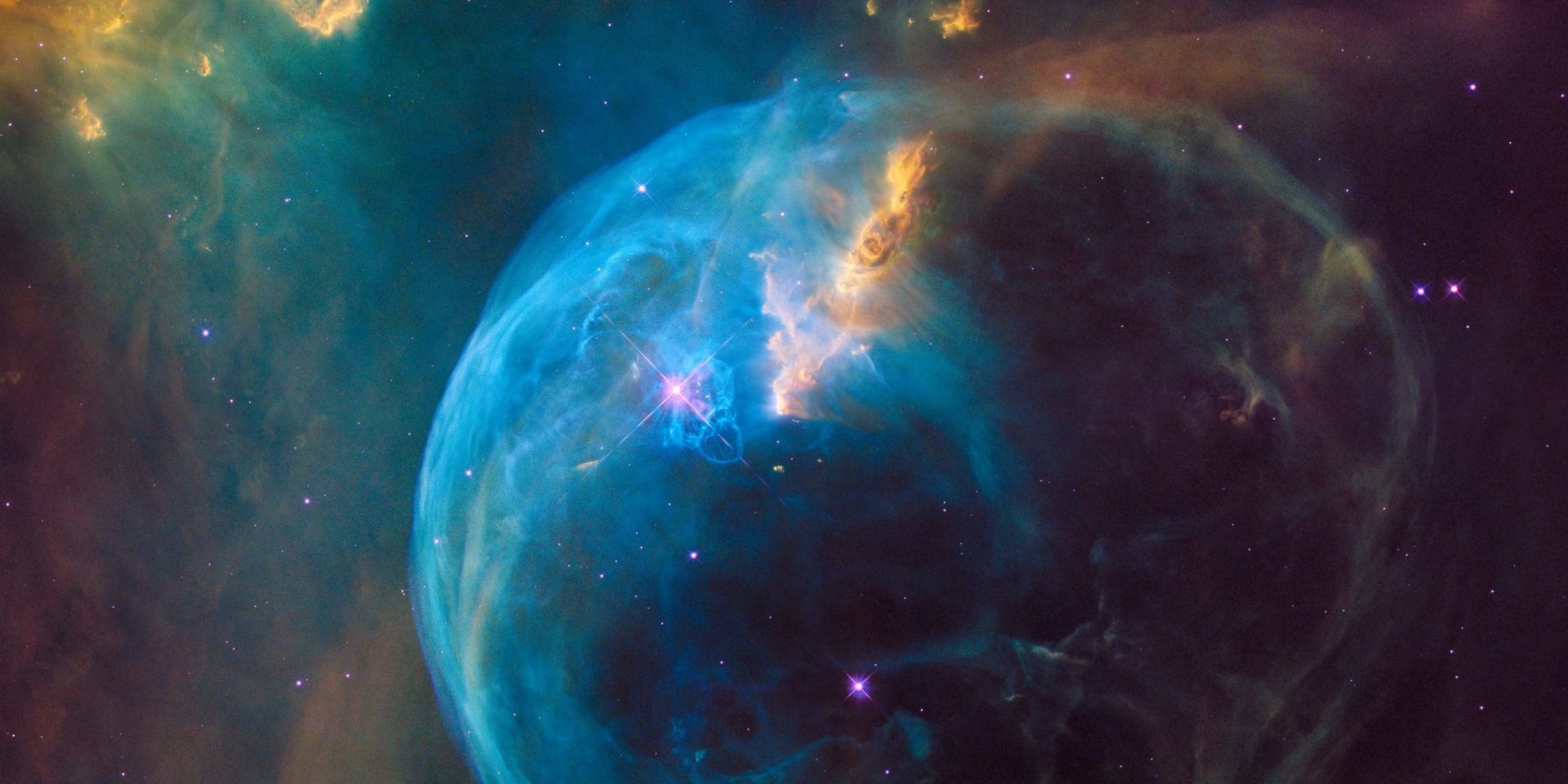It was a scientific norm to presume the big bang was utter chaos. This normality is now conjecture. Physicists, cosmologists, astronomers, and scientists of all kinds can no longer overlook the data of the low entropy state of the early universe – it was complex, orderly, and fixed. The exquisite structure, function, organization and interconnectedness of the physical universe and the delicate calibration of the laws, characteristics, parameters, and values of each condition necessary for intelligent life to exist immediately implies a deliberate and directive mind behind its apparent design[1]–[2]. To give you a glimpse, the fundamental constants of the universe – physical constants such as gravitational force, electromagnetic force, strong and weak nuclear forces, expansion speed of the universe; initial conditions and “brute facts” such as velocity of light, ratio of masses for protons and electrons, mass excess of neutron over proton; local planetary conditions such as the right amount of water in crust, large moon with right planetary rotation period, steady plate tectonics with right kind of geological interior, proper concentration of sulfur, right planetary mass, near inner edge of circumstellar habitable zone (often called “goldilocks zone”) and also within the galactic habitable zone, to name just a few – are all balanced on such an inconceivably fine point, to call it astronomical is to grossly misconstrue just how precise these measurements were set into motion. Scientists are left God-smacked. It is not something you would expect if it had all been plunged out of a cosmic toilet bowl. Physicist Paul Davies notably remarked that “Through my scientific work I have come to believe more and more strongly that the physical universe is put together with an ingenuity so astonishing that I cannot accept it merely as a brute fact.”[3]
From physics to biology, the tuning appears so exact that it is impulsive to think a supernatural cause or agent had a purpose for it. God – as the immediate gut reaction goes – is what holds brazen opponents, such as proponents of New Atheism, culpable. Rather than let it be, or posit deism, they reject this inference as primitive jaw droppings of merely “natural” intuitions. It begs the question: Whose intuition should not be trusted here?
God, as a fact or hypotheses, best complements the elegance and fine-tuned clockwork characteristics needed to satisfy the interwoven complexity of our universe in order to create and sustain everything we see, feel, and understand simply. It is this simplicity of everyday experience that likewise veils a rich depth and complexity that many take for granted and more expect to see from an elegant designer’s handiwork. This has left the “anthropic question”, why the laws of nature are fine-tuned to permit life to exist, at the forefront of this discovery. And it is compounded even further when we, conscious entities who are able to quantify, predict, and comprehend such are thrown into the mix. In other words, it is not just a fine-tuned cosmos or cell that sparks reaction, it is how consciousness is fine-tuned with it.
Acclaimed physicists and Nobel Prize winner Roger Penrose, not to be mingled with the New Atheist regime, said the probability of the big bang occurring by chance is virtually incomprehensible, “There’s got to be fine-tuning. This is fine-tuning. This is incredible precision in the organization of the initial universe.”[4] and that “This now tells us how precise the Creator’s aim must have been: namely to an accuracy of one part in 10^10^123. This is an extraordinary figure. One could not possibly even write the number down in full, in the ordinary denary notation: it would be `1′ followed by 10^123 successive `0 ‘s! Even if we were to write a `0’ on each separate proton and on each separate neutron in the entire universe–and we could throw in all the other particles as well for good measure–we should fall far short of writing down the figure needed.”[5] If you didn’t catch that, there are less sub-atomic particles existing in the entire known universe than there are zeros. To give you another idea of the big picture, Craig points out that the number of seconds in the history of the universe (all the way back to the big bang) falls short to reach the decimal places required to match the probability if its occurrence. It is, by all scientific standards, impossible. A divine foot is in the door.

Furthermore, there are conservatively twenty-two (some argue over twenty-six[6]) necessary parameters and conditions that we know of that must be fine-tuned in order for intelligent life to exist, let alone flourish[7]. In fact, just one extraordinarily minuscule alteration in one key parameter in the laws of physics would render life impossible, not just here, but anywhere in the universe[8]. According to Bayes’ theorem, the probability of a divine designer can readily be assumed. In this model, if a sufficiently powerful being exits, such as the Christian God, then the fine-tuned fundamental constants of the cosmos act as a prerequisite to enable intelligent life to exist; it concludes that the degree of belief in a divine designer ought to be more than half[9], which is greater odds than the Computer Simulation hypothesis (not that this logically conflicts with the existence of God but that it is an emotive deterrent from religious convictions). God is a perfectly coherent, justifiable, and all the more likely.
Hawking said, “The remarkable fact is that the values of these numbers [the constants of physics] seem to have been very finely adjusted to make possible the development of life.”[10] Astronomer Fred Hoyle, a cantankerous panspermian like Crick, commented, “A common sense interpretation of the facts suggests that a superintellect has monkeyed with physics.”[11]
Physicists, astronomer and former head of NASA Goddard Institute for Space Studies Robert Jastrow said, “This is the most powerful evidence for the existence of God ever to come out of science.”[12] He continues, “[The scientist] has scaled the mountains of ignorance; he is about to conquer the highest peak; as he pulls himself over the final rock, he is greeted by a band of theologians who have been sitting there for centuries.”[13]
I hope the point is clear. None of these scientists are theists, and yet the immediate intuition, inference, and implication we all draw when we look at the early universe and its life-permitting qualities is unanimous: Superintelligence. Creator. God. Atheism is not the absence of belief; it is an outright rejection. And there is nothing in the sciences that demands or warrants rejection, at best you are left with a thoughtless global skepticism.
Dawkins confesses that it is one of the best arguments against atheism and seems to recognize the weight of the argument, as well: the mathematical odds of it occurring by chance alone, with no fine-tuning mechanism to point at, is utterly diminutive to consider plausible. While Dawkins agrees with Crick, that we ought to be immunized against God, he is obliged to agree with Craig that “the chances that the universe should be life-permitting are so infinitesimal as to be incomprehensible and incalculable”. Craig continues:
There are a number of such quantities and constants present in the big bang which must be fine-tuned in this way if the universe is to permit life. So improbability is multiplied by improbability until our minds are reeling in incomprehensible numbers. There is no physical reason why these constants and quantities should possess the values they do…. Our discovery of the fine-tuning of the big bang for intelligent life is like someone’s trudging through the Gobi Desert and, rounding a sand dune, suddenly being confronted with a skyscraper the size of the Empire State Building. We would rightly dismiss as mad the suggestion that it just happened to come together there by chance. And we would find equally insane the idea that any arrangement of sand particles at that place is improbable and so there is nothing to be explained. Why is this? Because the skyscraper exhibits a complexity which is absent from random arrangements of sand. But why should the complexity of the skyscraper strike us as special?[14]
God as an explanation for all things is simple, intuitive, and elegant, and satisfies the extremely complex interplay between our basic everyday experience and the laws of nature that govern our perception of reality. When attempting to understand the origin of the created material universe in contrast to why we are here and alive in our present conscious condition, not just how, it brings the question of meaning to the forefront of thought yet again: Why did the universe come into being at all?

Matlock Bobechko is the Chief Operating/Creative Officer of Bible Discovery. He is an eclectic Christian thinker and writer, award-winning screenwriter and short filmmaker. He writes a weekly blog on theology, apologetics, and philosophy called Meet Me at the Oak. He is also an Elder at his local church.
[1] Ratzsch, Del and Jeffrey Koperski, “Teleological Arguments for God’s Existence”, The Stanford Encyclopedia of Philosophy (Summer 2020 Edition), Edward N. Zalta (ed.), URL = <https://plato.stanford.edu/archives/sum2020/entries/teleological-arguments/>.
[2] The formal fine-tuning argument:
1. The fine-tuning of the universe is due to either physical necessity, chance, or design.
2. It is not due to physical necessity or chance.
3. Therefore, it is due to design.
[3] Paul Davies, The Mind of God (New York: Simon & Schuster: 1992), 16.
[4] Roger Penrose Fine Tuning. James Cagne (YouTube channel). Roger Penrose gives a lecture on entropy and the initial conditions of the universe.
[5] Roger Penrose, Emperor’s New Mind, pp 339-345. Penguin Books (1989).
[6] Ethan Siegel, It Takes 26 Fundamental Constants To Give Us Our Universe, But They Still Don’t Give Everything. Forbes. Published on August 22, 2015.
https://www.forbes.com/sites/ethansiegel/2015/08/22/it-takes-26-fundamental-constants-to–us-our-universe-but-they-still-dont-give-everything/?sh=505efe9b4b86
[7] Jay W. Richards, List of Fine-Tuning Parameters, Discovery Institute (2018).
[8] Lewis, G., Barnes, L., & Schmidt, B. (2016). A Fortunate Universe: Life in a Finely Tuned Cosmos. Cambridge: Cambridge University Press. doi:10.1017/CBO9781316661413
[9] Friederich, Simon, “Fine-Tuning”, The Stanford Encyclopedia of Philosophy (Winter 2018 Edition), Edward N. Zalta (ed.), URL = <https://plato.stanford.edu/archives/win2018/entries/fine-tuning/>.
[10] Stephen Hawking, A Brief History of Time, 125.
[11] Fred Hoyle, “The Universe: Past and Present Reflections,” Engineering and Science (November, 1981), 12.
[12] Robert Jastrow, “The Astronomer and God,” in The Intellectuals Speak Out about God, ed. Roy Abraham Varghese (Chicago: Regnery Gateway, 1984), p. 22. Extracted from William Lane Craig, What is the evidence for/against the existence of God? Reasonable Faith. First published April 1998. William Lane Craig vs. Peter Atkins. Carter Presidential Center, Atlanta, Georgia, United States (April 1998).
https://www.reasonablefaith.org/media/debates/what-is-the-evidence-for-against-the-existence-of-god/
[13] Robert Jastrow, God and the Astronomers (New York: W. W. Norton, 1978), p. 116. Extracted from William Lane Craig, What is the Relation between Science and Religion. Reasonable Faith.
https://www.reasonablefaith.org/writings/popular-writings/science-theology/what-is-the-relation-between-science-and-religion/
[14] William Lane Craig, What is the Relation between Science and Religion. Reasonable Faith. https://www.reasonablefaith.org/writings/popular-writings/science-theology/what-is-the-relation-between-science-and-religion/






